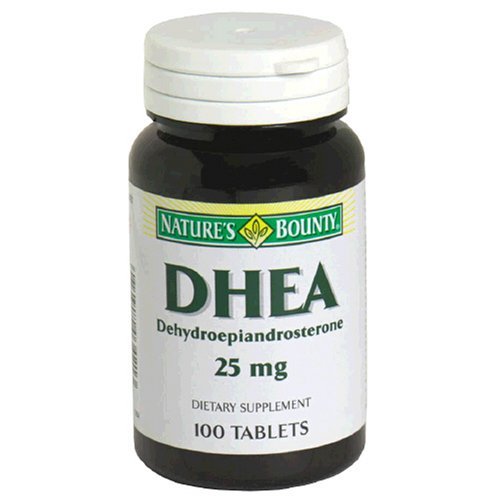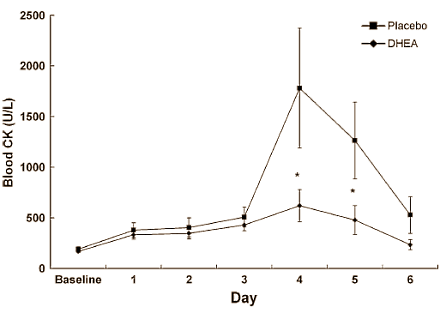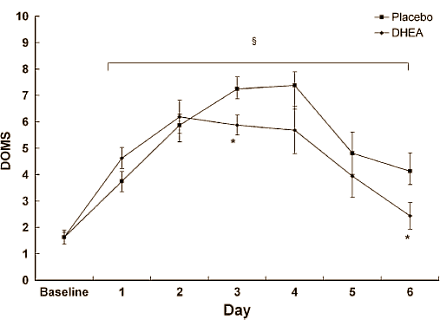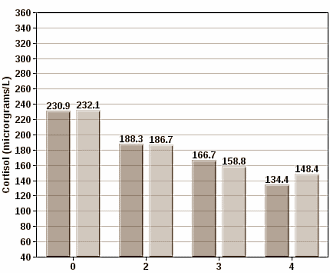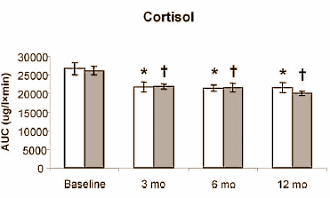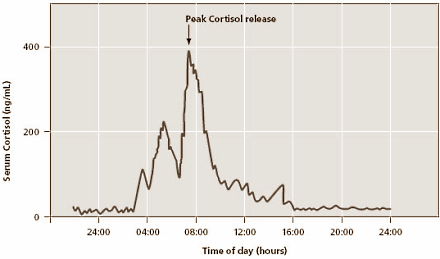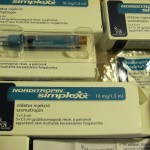By Admin – Steroidal.com
DHEA or Dehydroepiandrosterone is an endogenous pro-hormone produced by the adrenal glands, brain and gonads in men. DHEA is the most abundant steroid pro-hormone in the body. DHEA is produced from cholesterol through two cytochrome P450 enzymes. Cholesterol is converted to pregnenolone by the enzyme P450 scc then another enzyme, CYP17A1, converts pregnenolone to 17α-hydroxypregnenolone and then to DHEA. DHEA is a precursor to more potent hormones, such as, Testosterone, Estrogen and Dihydrotestosterone (DHT). It’s supplemented to treat various conditions and will improve confidence, well being, memory, sexual desire and prevent or treat erectile dysfunction. After or during a course of anabolic steroids, DHEA levels can decline, so supplementing it is suggested at 25-100 my every day, split in the morning and prior to bed. But these aren’t its only uses, DHEA is also anti-catabolic when supplemented and this can come in useful to steroid users.
If a supplement or compound is anti-catabolic, it may mean a few things. It may be anabolic in the body, it may encourage nitrogen retention, protein synthesis, protein turnover or slow catabolic hormones or processes, such as, cortisol and protein breakdown amongst others.
The first piece of data we’re going to investigate was recently conducted in January 2013 and published in the European Journal of Applied Physiology. They looked at 16 male subjected with an average age of 19. Every afternoon for five consecutive days, the students ran for 40 minutes at 65% of their maximum heart rate. Weight training followed and on day 2 they did an extra 45 minutes of running. Eight of the subjects took DHEA at 100mg every day, split into 50mg AM and PM dosages, the other eight took placebo.
Various hormones were tested and the results in the DHEA group are interesting. Firstly, the DHEA group had a slightly higher testosterone level, but this was not statistically significant. Interestingly, the enzyme creatine kinase [CK] was lower in the DHEA group compared to the control. CK is an accurate indicator of cell damage and appears where adenosine triphosphate (ATP) is used, such as, skeletal muscle. In the DHE group, CK was considerably lower indicating less muscle damage had occurred. This was confirmed by the male subjects also reporting less muscle soreness or DOMS.
The researchers concluded that the DHEA is absorbed by the damaged muscle fibres aiding them carry out repairs.
“Additional research is encouraged to evaluate whether DHEA supplementation can improve training adaptation in DHEA deficient subjects, such as elderly and patients under major stress”, the Taiwanese researchers write.
The second piece of data we’re going to look at, again demonstrates an anti-catabolic effect when DHEA is supplemented. But this time its going to effect the catabolic hormone – cortisol.
Cortisol (or hydrocortisone) is a catabolic glucocorticoid produced by the adrenal cortex. It is released in response to stress or exercise and a low level of blood glucocorticoids. Its primary functions are to increase blood sugar through gluconeogenesis; suppress the immune system. It aids in fat, protein and carbohydrate metabolism as well as is imperative to humans every day functions.
In 2006 Italian researchers gave their women aged between 50 and 55 [dark bars on the figure below] and between 60 and 65 [light coloured bars] – a daily 25 mg DHEA for a period of 12 months. 0 = cortisol level before DHEA supplementation started; 2 = after 3 months; 3 = after 6 months; 4 = after 12 months.
The graph above may indicate how the DHEA supplementation may work. adrenocorticotropic hormone (ACTH) was also tested which is the messenger hormone that tells the body to secrete cortisol. It shows the effect of the administration of 10 micrograms ACTH on the cortisol level, before administration, then and after 3, 6 and 12 months. ACTH secretion increases under stress or other reasons discussed above. It seems that DHEA supplementation makes the adrenals less sensitive to ACTH.
Cortisol levels peak during sleep and peak upon awakening in the morning. Its actually a hormone used when exiting the bodies deepest level of sleep – REM or rapid eye movement. Therefore, we suggest supplementing DHEA before you go to bed for the night as it may be possible to blunt the peak of cortisol.
We’re not stating to now take a ton of DHEA to ward of all anti-catbolic hormones and processes as it can also raise estrogen levels as show in this study. But it can be used at 25 – 100mg every dat split AM/PM and should be part of almost all hormone replacement therapies and is normally prescribed by endocrinologists as a staple with HCG.
Source:
Eur J Appl Physiol. 2012 May 16. [Epub ahead of print].
Gynecol Endocrinol. 2006 Nov;22(11):627-35.




